After five days of negotiations in June, the IOTC reached an agreement to limit catch for overfished, ‘near threatened’ Indian Ocean yellowfin tuna. However, six member nations of the IOTC have stated intent to object to the critical recovery measure, threatening to undermine the agreement.
Given the overfished and ‘near threatened’ status of the Indian Ocean yellowfin tuna stock, and following mounting pressure from around the globe, members of the Indian Ocean Tuna Commission (IOTC) – the Regional Fisheries Management Organisation (RFMO) responsible for the management of tuna in the Indian Ocean – came to agree on a recovery plan for yellowfin at the 25th session in early June. The new measure will apply to 2022 only; a new stock assessment will be published later this year and should drive further management measures. However, six member nations are threatening to hamper these efforts.
The most recent advice of the IOTC Scientific Committee was for 2022 catches not to exceed 403,000mt. In the lead up to the 25th Session in June, the Global Tuna Alliance (GTA) – an independent group of highly-influential retailers and tuna supply chain companies striving for environmentally sustainable tuna – called upon IOTC members to limit catch to 341,000mt, to account for increased fishing mortality in previous years, and to allow the stock to fully recover.
In a pivotal move in June this year, after two abortive attempts in November and March, the IOTC reached an agreement to limit catch in 2022 to 401,011 mt – above the GTA’s ask, but within the IOTC Scientific Committee’s advice. However, it is now unclear if this total reduction in catch will in reality be achieved, as six IOTC member nations stated ‘intent to object’ to the limit.
Sarah Bollermann, Group Director Corporate Responsibility International, ALDI SOUTH Group said:
“As Part of our Corporate Responsibility strategy, we are committed to do our part to eliminate overfishing in our seafood supply chains. We urgently call on all IOTC member nations to prioritize long-term stock health of Indian Ocean yellowfin tuna for the benefit of local communities and long-term global supply partnerships.”
During the 25th Session, India, Indonesia, Oman, Iran, Madagascar and Comoros – whose total Indian Ocean yellowfin tuna catches reached 170,179mt in 2019 – stated their intention to object to the catch limit, most claiming the plan would have an ‘adverse impact’ on their artisanal fishers. Indonesia and Oman have now formally objected, with members having 120 days to do so. Once formally objected, members are not bound by the newly agreed catch levels and are permitted to continue fishing to previous levels.
The GTA have calculated that if all six of the above member nations object and continue to fish Indian Ocean yellowfin at 2019 levels (the most recent available data), then the total catch for all IOTC members in 2022 could be as high as 465,214mt – a staggering 64,203mt above the agreed limit.
Tom Pickerell, Executive Director of the GTA, said:
“Despite the GTA calling for a 341,000mt catch in 2022, we were satisfied that an agreement had been reached that adhered to the Scientific Committee’s advice – albeit at the upper end. However, all the hard work by the delegations that pushed this through will be thrown away if these countries formally object. Shared stocks require collective management; everyone cannot get what they want and compromise is needed by all. This self-interest is putting the entire fishery at risk.”
Whilst 24 IOTC member nations have committed to protecting yellowfin tuna stock, this commitment may be futile due to an apparent short-sighted move from the remaining six members, who – despite being economically and nutritionally dependent on the sustainability of yellowfin – have demonstrated an unwillingness to compromise in 2022.
ENDS.
Notes to editors:
The Global Tuna Alliance (GTA) is an independent group of retailers and tuna supply chain companies who are committed to achieving more transparent, socially responsible, and environmentally sustainable tuna fisheries. Operating over 10,000 stores in 21 countries across four continents, they use their collective purchasing power to influence the policies set out by the tuna Regional Fisheries Management Organizations (tRFMOs).
Indian Ocean Tuna Commission (IOTC) is an intergovernmental organisation responsible for the management of tuna and tuna-like species in the Indian Ocean. It is one of the five tuna Regional Fisheries Management Organisation (RFMOs).
